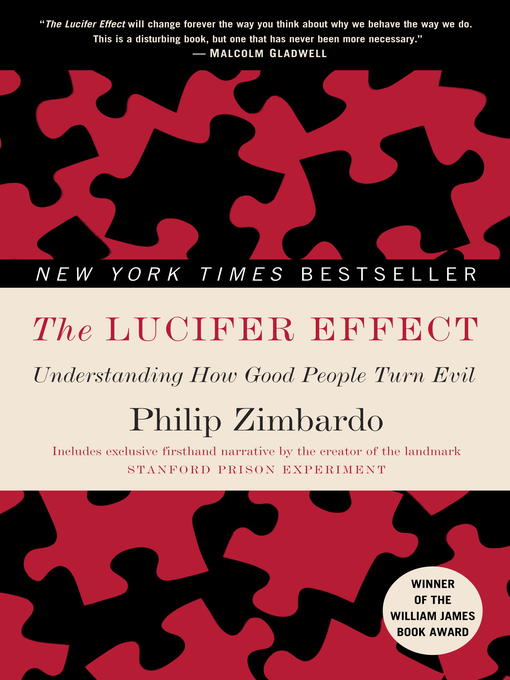
The Lucifer Effect
Understanding How Good People Turn Evil
کتاب های مرتبط
- اطلاعات
- نقد و بررسی
- دیدگاه کاربران
نقد و بررسی

February 12, 2007
Psychologist Zimbardo masterminded the famous Stanford Prison Experiment, in which college students randomly assigned to be guards or inmates found themselves enacting sadistic abuse or abject submissiveness. In this penetrating investigation, he revisits—at great length and with much hand-wringing—the SPE study and applies it to historical examples of injustice and atrocity, especially the Abu Ghraib outrages by the U.S. military. His troubling finding is that almost anyone, given the right "situational" influences, can be made to abandon moral scruples and cooperate in violence and oppression. (He tacks on a feel-good chapter about "the banality of heroism," with tips on how to resist malign situational pressures.) The author, who was an expert defense witness at the court-martial of an Abu Ghraib guard, argues against focusing on the dispositions of perpetrators of abuse; he insists that we blame the situation and the "system" that constructed it, and mounts an extended indictment of the architects of the Abu Ghraib system, including President Bush. Combining a dense but readable and often engrossing exposition of social psychology research with an impassioned moral seriousness, Zimbardo challenges readers to look beyond glib denunciations of evil-doers and ponder our collective responsibility for the world's ills. 23 photos.

Starred review from March 15, 2007
Zimbardo (psychology, emeritus, Stanford Univ.) is best known for a 1971 study, since called the Stanford Prison Experiment, in which student volunteers were randomly assigned to be guards or prisoners in a simulated jail. Although everyone involved knew that the so-called prisoners weren't guilty of anything, the violence and humiliation inflicted by the guards became so severe that the study had to be terminated prematurely. Here, Zimbardo explains that this happened not because the guards were bad people but because of the social situation into which they were thrust. Recently, he studied a real-life situation of his experiment when he served as a defense consultant in the trial of an Abu Ghraib guard. Zimbardo describes his own work and that of others, such as psychologist Stanley Milgram and sociologist Erving Goffman, in order to build a set of prescriptions for governments and organizations that would minimize the possibility of such human rights abuses occurring again. A well-written and important work; recommended for all libraries.Mary Ann Hughes, Neill P.L., Pullman, WA
Copyright 2007 Library Journal, LLC Used with permission.

























دیدگاه کاربران